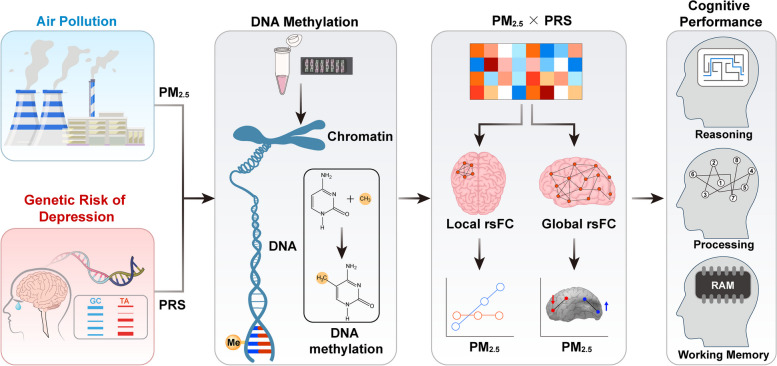Fig. 1.
Study overview. We hypothesized that air pollution increased the risk of cognitive impairment in people with a high genetic predisposition to depression by altering resting-state brain function (regional activity and brain network) via DNA methylation. The gene-environment interactive effect can be evaluated via a multiplicative interaction term between the air pollutant and the polygenic risk score (PRS) of depression to evaluate how air pollutants modified the effect of genetic susceptibility on brain function and cognition. First, we examined the effect of air pollution and genetic risk of depression on cognitive performance. Then, we elucidated the impact of recent air pollution exposure on resting-state brain function concerning polygenic risk for MDD across multiple levels of brain function, that is, regional activity and brain network. Finally, the underlying DNA methylation mechanism was explored. PM2.5, particulate matter less than 2.5 μm; rsFC, resting-state functional connectivity

